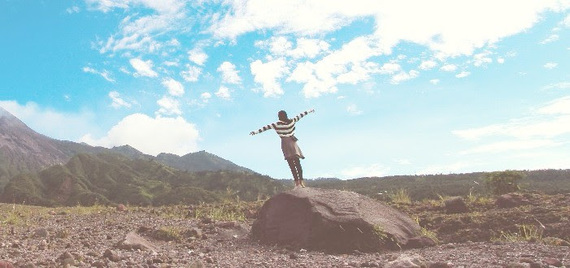How much do you organize your life so as to avoid failure?
What is your relationship with those face down moments? Do you put your head in your hands thinking, "I'm obviously a failure, I'll know not to do that again"? Or do you think "Oh that didn't work out this time and I know better for next time".
In truth, failure isn't failure if you can learn from it.
Brené Brown's new work, 'Rising Strong', is all about those face down moments that we all have. Her premise is that if we have a process for picking ourselves back up again after a failure then we are able to be more brave, more often. And if we are truly brave with our lives then we will fail. (Note: She doesn't mean you will risk failing more often. She means you will actually fail more often.)
What is so striking for me about the process is that it starts with getting curious about our emotions. And how opposed that is to how most of us live our lives.
I go into organizations where people are told they are 'too emotional' and that 'emotion should be kept out of the workplace'. I coach people who were told as children that they should 'stop being upset about that as it won't get you anywhere' or 'emotion is a sign of weakness'.
I was an emotional being in the workplace. I definitely showed emotion in a way that other people weren't entirely comfortable with. And usually this was the flip side of me really caring about the work that I did and therefore getting frustrated by lengthy processes or people not sharing my vision. More recently someone observed that I seemed angry* about the way a project was going in a big organization. It was taken by me, and I assume it was meant by them, as the opposite of a compliment. The implication was 'there is no room for anger in this organization'.
But what if we could get curious about these emotions? Instead of feeling them and immediately pushing them away, what if we could hold the space for them, reflect on what is behind the emotions and move through them mindfully? When I was told I seemed angry, I mainly felt incapable and embarrassed. I subsequently tried to shut the anger away and show up as lovely, kind, jolly Rox to move the project forwards (because nice girls don't get angry, right? And, more to the point, you "should never show emotion" in the workplace). Reflecting on this now, I was angry because I saw something that really contravened my values being played out. Too right I was angry - the behavior I was seeing needed calling out, not passively accepting with a smile on my face.
Let's be clear, holding the space for our anger does not mean shouting or acting aggressively. I mean giving ourselves permission for the feeling and getting curious about the cause of it, rather than pushing it away immediately.
I see the alternative being played out in workplaces and families across the country. Unexpressed emotion has a habit of building up and either affecting you physically (insomnia, anxiety, stress) or of finding an outlet at an equally unsuitable time (road rage, shouting at your children). I wonder if the passive aggressiveness I see in offices is a symptom of this too. As I tried to shut my anger away, I found myself on a constant loop in my head having circular conversations with the people involved in this scenario.
It is only through knowing how to rise strong, trusting that we will be able to pick ourselves back up again enhanced rather than diminished by a failure, that we are going to be able to take risks in our careers and in our lives that will move us forwards. The very first step in this process involves getting curious about our emotions and acknowledging when we are emotionally hooked.
*Anger is often called a secondary emotion because we tend to resort to anger in order to protect ourselves from or cover up other vulnerable feelings. I'm keenly aware of this and yet still wanted to use anger as the example here because we've perhaps got bigger issues to grapple with first, before diving into the complexity of emotion.
Image by Utoma Hendra Saputra (www.unsplash.com)

